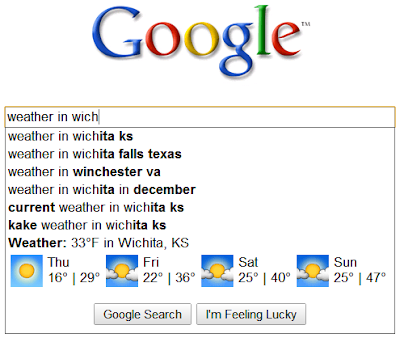This is part of a regular series of posts on search experience updates that runs weekly. Look for the label This week in search and subscribe to the series. - Ed.
From enhancements in real-time search to Vancouver happenings at your fingertips, this week included a number of exciting search launches:
Winter Games info in search results
As the 2010 Winter Games kick off, we've made it easy for you to follow all of the action in Vancouver. Now, when you search for the latest results for your favorite sport, you'll see the information you're looking for just above the search results. Looking for the latest schedules? They're just a search away. And if you're interested in following how your home country is doing, you can quickly view the latest medal count. All that's left for you to do is cheer for your favorite team and enjoy the games!
Example searches: [men's hockey], [alpine skiing schedule] and [medal count]
Google Buzz in real-time search
Tuesday, we announced Google Buzz as part of our efforts to help make the web more social. Buzz is a new way to start conversations about the things you find interesting, allowing you to share updates, photos and videos right in Gmail. When we launched Buzz we made sure that we had it integrated into real-time search. Since real-time is all about searching what's happening right now, including changes to webpages, the latest news articles, new blog posts and fresh microblog content, it only seemed natural to include Buzz.
Maps of more countries in search results
Many of us use online maps so frequently that it's easy to forget that many countries lack detailed, street-level digital maps. But thanks to people adding their local knowledge to Google Map Maker, the local search results for places like Romania, Iceland, and Peru now include a map. In fact, as of this week we're able to show a map everytime we show local search results. As a result, the efforts of global citizen cartographers are really serving the needs of local users, schools, city planners, and tourists.
Example search: [catedral de lima]
Aardvark acquisition
This week, you might have seen our announcement that we've acquired the technology company Aardvark. Aardvark allows you to easily tap into the knowledge and experience network of your friends and extended network of contacts. The way it works is quite simple — you just send a question in plain English, like you would when speaking with a friend. Aardvark then acts as a hub, figuring out who might be able to answer your question, and then responds with an answer. You can read more about the announcement here, and Aardvark is already available in Google Labs, so you can try it out today.
It was a busy week for us in search. See you back here next week!
From enhancements in real-time search to Vancouver happenings at your fingertips, this week included a number of exciting search launches:
Winter Games info in search results
As the 2010 Winter Games kick off, we've made it easy for you to follow all of the action in Vancouver. Now, when you search for the latest results for your favorite sport, you'll see the information you're looking for just above the search results. Looking for the latest schedules? They're just a search away. And if you're interested in following how your home country is doing, you can quickly view the latest medal count. All that's left for you to do is cheer for your favorite team and enjoy the games!
Example searches: [men's hockey], [alpine skiing schedule] and [medal count]
Google Buzz in real-time search
Tuesday, we announced Google Buzz as part of our efforts to help make the web more social. Buzz is a new way to start conversations about the things you find interesting, allowing you to share updates, photos and videos right in Gmail. When we launched Buzz we made sure that we had it integrated into real-time search. Since real-time is all about searching what's happening right now, including changes to webpages, the latest news articles, new blog posts and fresh microblog content, it only seemed natural to include Buzz.
Maps of more countries in search results
Many of us use online maps so frequently that it's easy to forget that many countries lack detailed, street-level digital maps. But thanks to people adding their local knowledge to Google Map Maker, the local search results for places like Romania, Iceland, and Peru now include a map. In fact, as of this week we're able to show a map everytime we show local search results. As a result, the efforts of global citizen cartographers are really serving the needs of local users, schools, city planners, and tourists.
Example search: [catedral de lima]
Aardvark acquisition
This week, you might have seen our announcement that we've acquired the technology company Aardvark. Aardvark allows you to easily tap into the knowledge and experience network of your friends and extended network of contacts. The way it works is quite simple — you just send a question in plain English, like you would when speaking with a friend. Aardvark then acts as a hub, figuring out who might be able to answer your question, and then responds with an answer. You can read more about the announcement here, and Aardvark is already available in Google Labs, so you can try it out today.
It was a busy week for us in search. See you back here next week!





